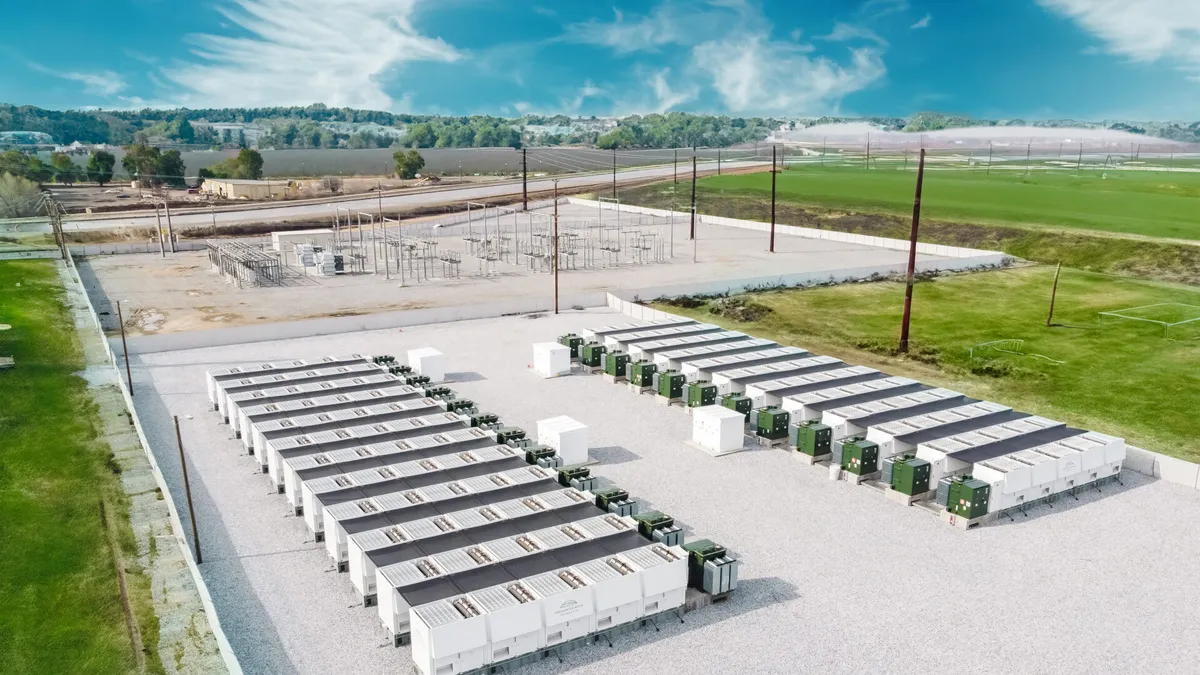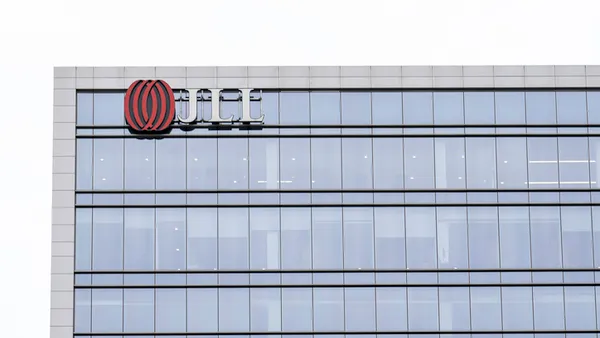Dive Brief:
- Trane Technologies is integrating its TRane Air Conditioning Economics, or TRACE, software, which provides mechanical, electrical and plumbing and HVAC engineering solutions, with Autodesk’s building information modeling platform, Autodesk Revit to help architecture, engineering, construction and operations professionals cut carbon emissions in the early stages of commercial building design, according to an announcement last Tuesday.
- C.Scale, a carbon assessment platform developed by architecture firm EHDD, also entered the market last week, with an AI-powered whole life carbon calculation engine that can streamline estimates of carbon emissions across building lifecycles, from small renovations to large-scale developments.
- Both announcements reflect a growing push to equip building professionals with technology that can advance pathways for meeting sustainability goals, aligning with a growing reliance on digital tools and data-driven strategies to meet net-zero targets in the built environment, amid mounting regulatory pressures.
Dive Insight:
Trane Technologies’ strategic collaboration with Autodesk marks a “significant step forward” in efforts to drive emission reductions, by optimizing thermal management systems as part of the building design process, Oakley Roberts, vice president of innovation and product management at Trane Technologies, said in a statement.
TRACE 3D, which models HVAC systems and controls, can provide options for energy and cost savings and draws on the U.S. Department of Energy’s EnergyPlus engine to help users interpret and validate projects with clarity, according to a product brochure. The software facilitates the integration of mechanical, engineering and plumbing, or MEP, and HVAC systems by providing analysis tools that can help engineers and designers optimize HVAC performance and ensure accurate scaling of complex systems, Trane Technologies said.
Integrating Trane’s TRACE software with Autodesk’s BIM technology will help “accelerate the industry’s move toward sustainable building design,” Roberts said.
“Key workflow innovations will focus on enhancing MEP design process efficiency for Trane customers” and lay the foundation for AI-assisted design, removing manual steps, ensuring greater accuracy and speeding up the design process, Trane said in a Nov. 12 news release.
Meanwhile, C.Scale says it integrates assessments of embodied, operational, refrigerant and landscape carbon emissions to help users assess the whole life carbon emissions of each project. Based on data from thousands of buildings worldwide, this platform democratizes access to critical carbon data and decision-making tools, EHDD said in its news release.
With the climate crisis requiring “bold action at unprecedented speed and scale,” C.Scale, launched as an independent public benefit corporation, can “accelerate the deployment of our technology” to facilitate carbon reduction in building projects, C.Scale CEO and co-founder Jack Rusk said in a statement. The spinoff positions C.Scale to launch an expanded platform that “will support the entire building lifecycle, from early-phase carbon estimation through compliance reporting and construction,” EHDD said in a Nov. 12 news release.
C.Scale’s EPIC tool, an open-access platform released in 2022, has already become a “cornerstone for low-carbon building design with over 5,000 users worldwide,” EHDD said. The architecture firm noted that Autodesk and Schneider Electric have already integrated C.Scale’s application programming interface into their own tools, “validating its potential to become an industry standard for building carbon analysis.”
Schneider Electric’s Building Decarbonization Calculator, launched in September, was developed in collaboration with JLL and C.Scale, which is “working closely with Schneider Electric on machine-learning models to support climate action at speed and scale,” according to a news release. The calculator, which aims to help building owners and operators meet sustainability-led regulatory requirements, as well as fines, such as the starting penalty of $0.50 per square foot for noncompliance with New York City’s Local Law 97, according to Mike Kazmierczak, global vice president of digital energy for Schneider Electric.














